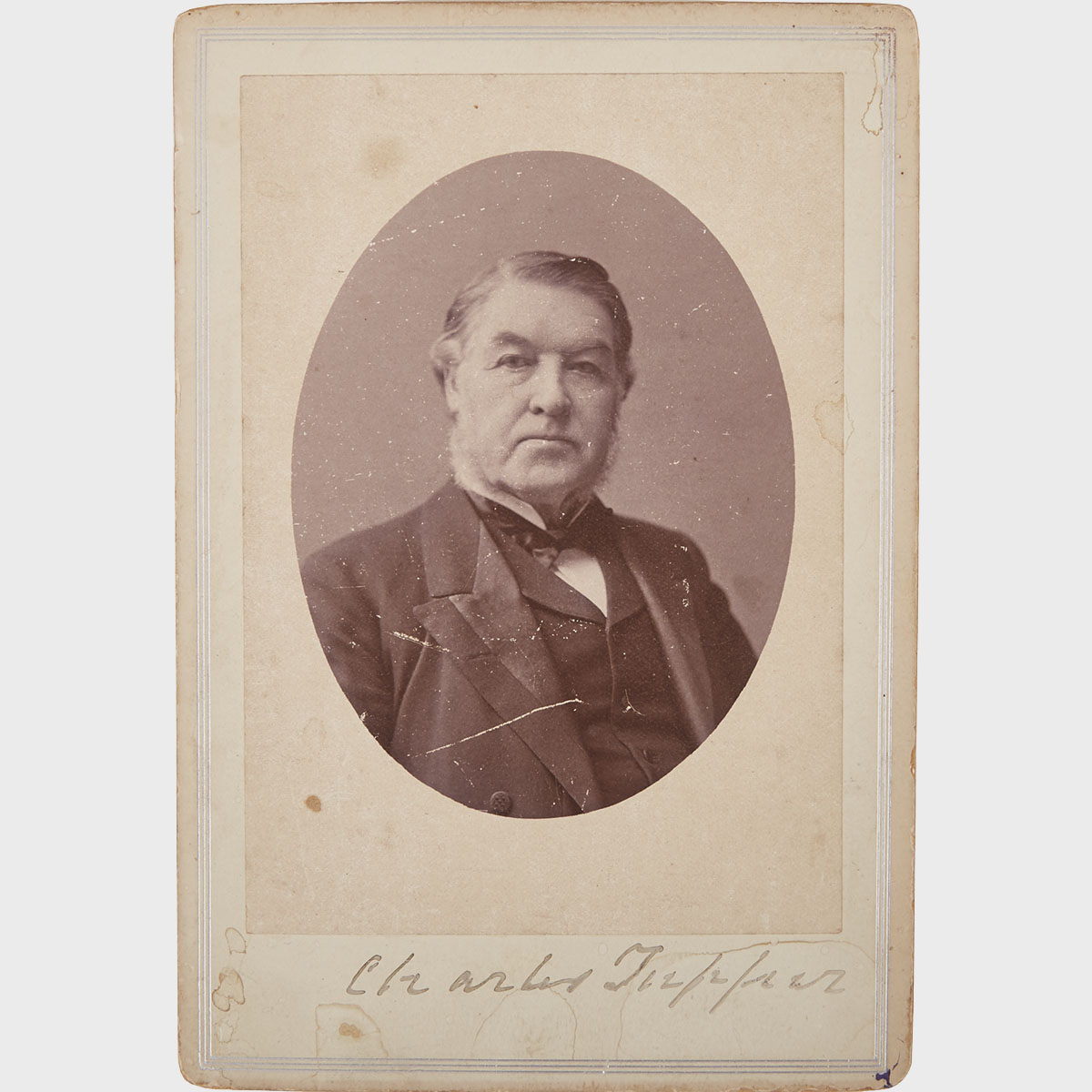Lot 600
Sir Charles Tupper Signed Portrait Cabinet Card, William James Topley, 1896

Note:
Born in Amherst, Nova Scotia in 1821, Charles Tupper played a crucial role in the creation of the nation, going against all odds to win a Conservative seat in the Nova Scotia Assembly and eventually rising through the political system to become Prime Minister. While he was primarily a politician, Tupper also earned a medical degree and set up a successful practice, where he worked as a surgeon, municipal medical officer and advisor throughout his time in parliament. As he became premier of Nova Scotia in 1864, during the final years of the American Civil War, Tupper argued that the unification of provinces was necessary in order to safeguard the interests of the nation against potential American aggression and the perceived belief that Britain was lessening its support of its colonies.
Focusing initially on what he saw as the more achievable goal of a Maritime union at the Charlottetown Conference, discussions quickly moved onto the idea of unifying of all the British North American colonies. Despite fierce anti-Confederate opposition by his political adversary, Joseph Howe, and his own doubts that the Maritime provinces were stronger together, Tupper won the vote to bring Nova Scotia into Confederation, signing the landmark British North America Act in 1867. Post-confederation, Tupper earned a federal seat and held a number of different ministerial roles over his long career, where he was able to mollify anti-confederate tensions in his home province and become Sir John A. Macdonald’s right hand man. While serving as high commissioner to the United Kingdom, he became an advocate of federal imperialism, a stance largely unpopular with Macdonald back in Canada. Despite this, he was called back to Ottawa to serve as secretary of state in the Conservative government of Sir MacKenzie Bowell, finally become Prime Minister in 1896. Attempting to settle the Manitoba Schools Question with legislation in support of the French Catholic minority, a move blocked by the House of Commons, the Conservatives suffered a resounding defeat at the general election of that year.
Tupper’s political contributions worked to define Canada as a nation today, and when he died in 1915 he was the last surviving Father of Confederation.
The cabinet card was a style of photograph which was widely used for photographic portraiture after 1870. It consisted of a thin photograph mounted on a card typically measuring 6 1⁄2 inches x 4 1⁄4 (16.5 cm by 10.8).


